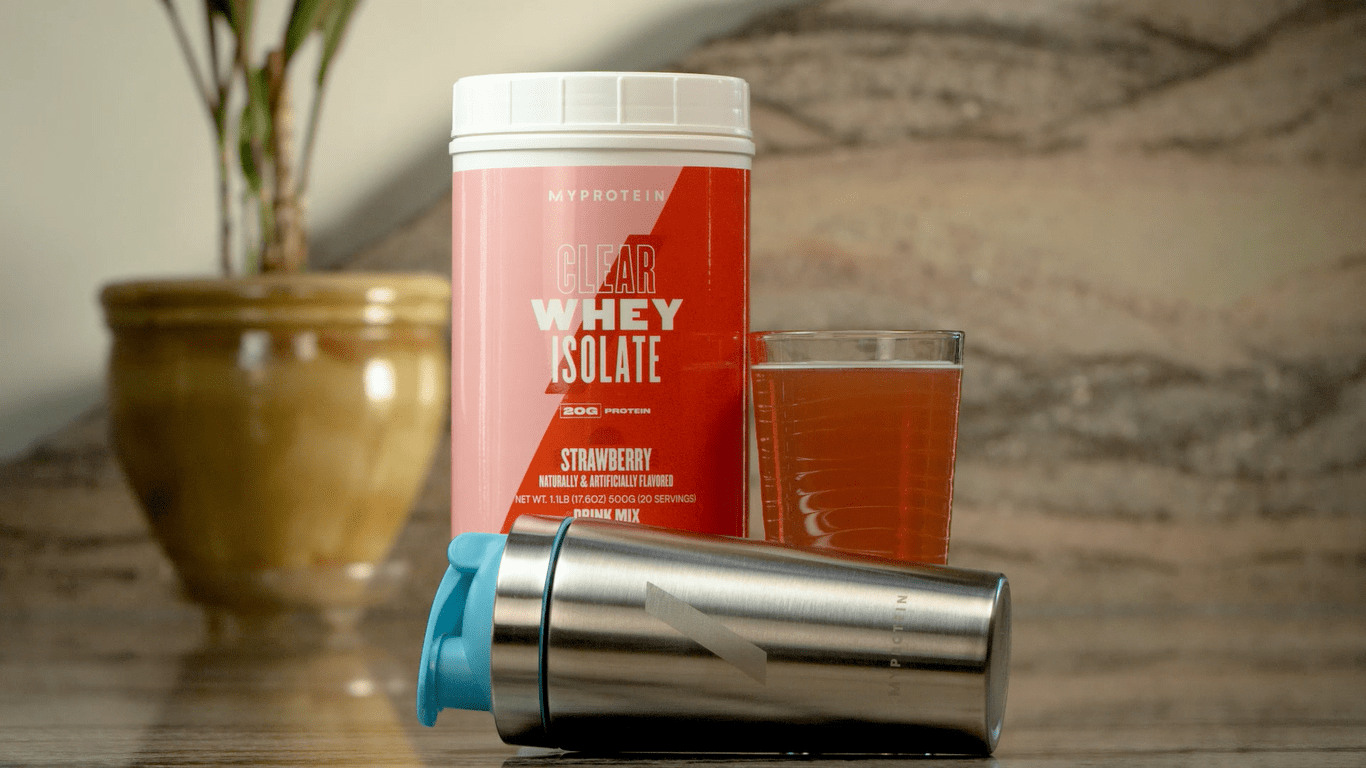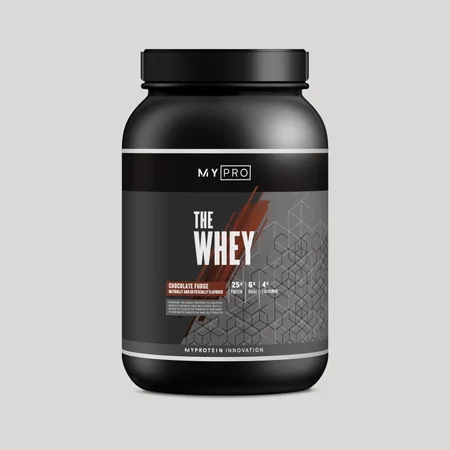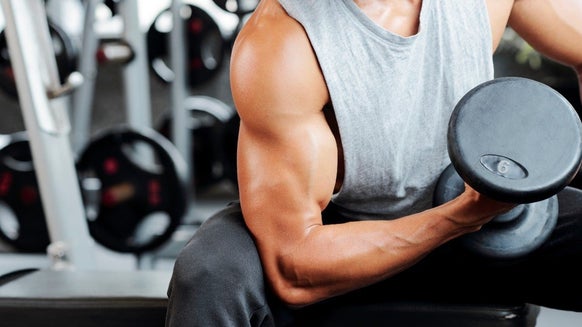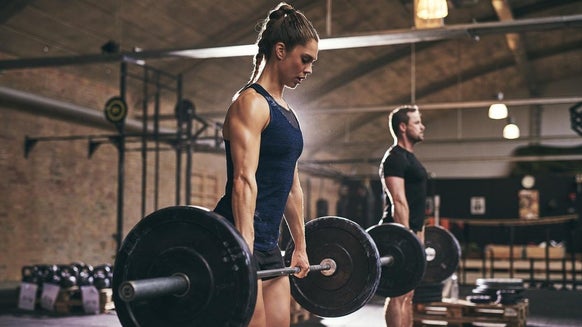
If you’re getting into your fitness, or are looking to conveniently boost your protein intake, then you’ve probably heard about protein shakes.
If you’re looking for info that’s a bit more backed up that the “bro science” you get from your gym buddies, then you’ve come to the right place. Let’s find out more about the benefits of protein shakes.

What is protein powder?
Protein powder is a dry, powdered supplement that can be derived from both animal or plant-based protein sources.
It can be flavoured or unflavoured, and is most often mixed with water, milk, or another liquid as part of a protein shake or smoothie.
Protein powder can also be used in a variety of other ways too — like baking or mixing into oats or cereal.
Some common forms of protein powder are whey, casein (both isolated from cow’s milk), soy, and pea protein.
What does protein powder do?
Protein powder is a way to supplement, which means to add to, your daily dietary intake of protein.
Our bodies need protein for many daily tasks — boosting our immune system, sending messages throughout the body, growth and repair of cells and tissues.1
However, the benefits of protein powder mostly focus on functional abilities, like adding lean mass, improving muscle recovery, and increasing satiety.2
The benefits of protein shakes
1. Protein helps build muscle
The main benefit of protein shakes is the fuel they provide to help build up muscle tissue after weight training (anabolism).
Our muscles are slowly breaking down when we push them to the limit with exercise, and “feeding” them protein helps them to rebuild and become stronger.
Research shows that protein supplements, along with a strength training routine, build and conserve muscle tissue as well as increase strength.3
2. Protein helps with weight loss
The muscle-building power of protein powders can also help those who want to lose weight.
While a calorie deficit is the most important part of losing weight (burning more calories than you eat), making your diet higher in protein can help to preserve your muscle mass and target fat loss.
Additionally, protein slows down the digestive process, which gives you a feeling of being full longer after you eat.2 This can decrease overeating and help with weight loss.
3. Protein powders are convenient
Rather than roasting a whole chicken, or soaking your lentils overnight, how about simply adding powder to water and shaking it up?
Protein powder is a great source of protein that’s also low in fats and carbs (unlike some other food sources) that you can knock back straight after your workout. It’s never been so easy to boost your nutrients.
4. Protein helps with recovery
We all want to avoid those post-workout DOMS and ensuring you’re getting enough protein can help with that. Protein helps to rebuild muscle after a workout by muscle protein synthesis, so that they’re ready to take on your next workout.
Types of protein
Whey
Whey is a protein source that comes from the liquid that is leftover when using cow’s milk to make cheese. It is dried and processed to the powdered supplement form.
Based on the level of processing and refining, there are three different types of whey protein powder: concentrate, isolate, and hydrolysed whey. All forms of whey are considered a complete source of protein, containing all of the amino acid building blocks that our bodies need.
Concentrate
Whey concentrate is the most common type of whey protein supplement. It has less protein per gram than the isolate or hydrolysed forms due to less processing.
However, this also makes it a lower price point and still contains between 30-90% protein. It can still contain some carbs in the form of lactose (milk sugar), which may be a concern for those with lactose intolerance.
Whey concentrate can take longer to digest than isolate or hydrolysed forms, giving your muscles a chance to absorb the protein over time.
Isolate
Whey isolate is the next level of processing that refines the protein powder further. It contains upwards of 90% protein, and very little carbs or fat.
Isolate contains little to no lactose making it more easily digestible. You may pay a higher price for the further level of refinement of this type of protein powder.
Hydrolysed
Hydrolysed whey protein takes the longer chains of peptides (protein) and breaks them into small chains of amino acids; the goal is to make this type of protein be absorbed more quickly and easily.
The amino acids are still effective in muscle repair and growth but are often used to limit the potential for allergic reactions to milk (like in baby formulas).
Hydrolysed whey contains between more than 75% protein content with little protein and fat.
Protein Blends
Protein blends are exactly what’s said on the tin — a blend of different types of nutrients and protein. If you’re looking to get a little more than usual from your protein shake, then they’re often topped up with extra nutrients. Here’s some examples of ours to give you an idea.
THE Whey
THE Whey is the ultimate combination of all three types of whey protein to provide great benefit to your muscles. The addition of MyZyme helps your body digest the protein into the smaller amino acid building blocks to maximise their benefits. It packs 25 grams of protein between the various sources of whey and comes in several flavours.
Weight Gainers
If your goal is to add bulk and muscle, a weight gainer blend might be best for you. It contains not only high-quality protein (and a LOT at 31g per serving), but also carbohydrates and a high calorie count to help you add mass.
A weight gainer blend is convenient, much easier than making extra meals, and you can feel good about the quality of the calories and protein that you’re consuming.
Vegan Protein
Myprotein’s Vegan Protein Blend combines pea and fava bean proteins to give a complete range of the amino acids your body needs.
It can be difficult to find all of the essential amino acids in plant-based proteins, but this blend contains them all in a 22g protein serving.
For anyone who wants to avoid animal-based proteins, the Vegan Blend can boost your protein intake and help you feel confident that you’re fuelling your body properly.
You can also get vegan protein powders made from soy or pea protein — there's more choice than you think so that you can find the right one for you.
Casein
Casein is another protein powder made from milk proteins, but it’s digested much more slowly than whey protein powders.
While it seems obvious that you want quickly digesting protein after your workout, casein is a great option for later in the day — like before bed — when you want to fuel your muscles to repair and rebuild overnight.
Adding casein as part of your protein shake regimen can change the game, since our muscles take up to 24 hours to absorb protein after a workout.2
Collagen
Collagen is one of the most abundant proteins in our body and makes up a good portion of our connective tissues (muscle, cartilage) as well as our hair, skin, and nails. Collagen in supplements is usually sourced from chicken or beef.
Myprotein’s Collagen Protein Powder is hydrolysed, making it easy for the body to absorb and reap the benefits. It’s a great complement to whey protein as it contains higher levels of certain amino acids that are lower in a typical whey supplement.
Take Home Message
While there are many types of protein powders on the market targeting different goals, the benefits of using protein shakes can be useful for anyone. Whether you choose any of the types of whey protein, casein, vegan sourced, or collagen, your muscles (and the rest of your body) will be stronger and ready to perform at their best when you fuel them with high quality protein shakes.

Claire is a Registered Dietitian through the Academy of Nutrition and Dietetics and a board-certified Health and Wellness Coach through the International Consortium for Health and Wellness Coaching. She has a Bachelor of Science in Biology and a Master’s degree in Clinical Dietetics and Nutrition from the University of Pittsburgh.
Talking and writing about food and fitness is at the heart of Claire’s ethos as she loves to use her experience to help others meet their health and wellness goals.
Claire is also a certified indoor cycling instructor and loves the mental and physical boost she gets from regular runs and yoga classes. When she’s not keeping fit herself, she’s cheering on her hometown’s sports teams in Pittsburgh, or cooking for her family in the kitchen.
Find out more about Claire’s experience here.
1. USDA. 2015. Agricultural Marketing Service. AMS – USDA. [Online] April 24, 2015. [Cited: January 15, 2019.] https://www.ams.usda.gov/sites/default/files/media/ Whey%20Protein%20Concentrate%20TR.pdf.
2. Devries, M. C., & Phillips, S. M. (2015). Supplemental protein in support of muscle mass and health: advantage whey. Journal of food science, 80(S1), A8-A15.
3. Naclerio, F., & Larumbe-Zabala, E. (2016). Effects of whey protein alone or as part of a multi-ingredient formulation on strength, fat-free mass, or lean body mass in resistance-trained individuals: a meta-analysis. Sports Medicine, 46(1), 125-137.









